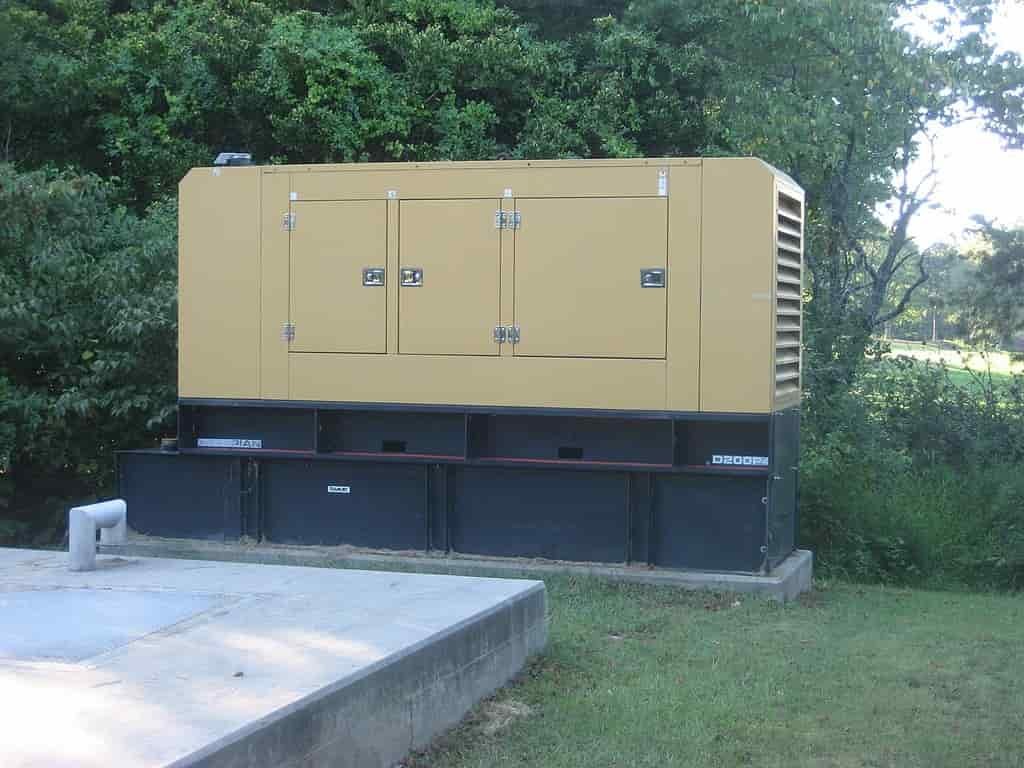Genset (generator set)
Genset is a practical device so that there is no shortage of electrical energy. And if you don’t have the means or the inclination to buy one, you can opt for a generator rental, especially if you need it for a short, determined time, such as at a special event or a house party.
Often called an electric generator, a generator is a device specially designed to produce electricity independently. It is above all one of the most reliable electrical energy production equipment.
Highly efficient, this type of device is available in several models. Thus, depending on the energy used, there is the diesel generator, the gasoline generator, the gas generator or even the solar generator.
Electricity is an indispensable element in human life today. Not only is it useful or necessary, but most of the things that humans use in their daily life require the presence of electricity. Absence or failure of electricity is a real hassle if you don’t have a power generator in your possession. It must be admitted that power supply companies cannot always meet the needs of consumers or users 24/7, and blackouts are not good for your electrical equipment.
Main characteristics
The characteristics of a generating set depend above all on the model in question. Indeed, an electric generator usually comes with a power ranging from a few hundred Watts to several megavolt-amperes. Its structure can be open or covered, depending on the type of use: indoor or outdoor. Also, depending on the on-board equipment, the device can also work with more or less noise, or even zero.
What is a generator made of? (genset composition)
Several elements make up the composition of a generating set:
- A chassis
- A heat engine
- An exhaust
- A current generator
- A fuel tank
- An air filter
- A ground terminal
- 230 Volt sockets
- An electric starter
- A launcher
- A voltmeter
- A battery
How does a generator work?
Generating set operation is largely based on two main components:
1. The engine, which transforms fossil energy into mechanical energy
2. The alternator, generating electric current of a certain intensity depending on the power of the engine.
How to choose your generator?
The generator is used as an emergency power supply or on the construction site to generate electricity. Diesel or petrol, with launcher or starter, the generating set has capacitor, AVR or Inverter regulation. Soundproof, power: advice on choosing your generator here!
1. Choose a generator according to your needs
Do you need electricity to run a few tools from time to time or to have lighting in a place with no power supply?
Choose a generator with a gasoline engine (preferably 4-stroke), with a power of approximately 3000 W, having a chassis with or without wheels (depending on the use) and with manual start. For the rectification of the current, a capacitor regulation will be more than enough. The power supplied will be single phase.
2. Are you going on vacation in a tent or camping car but you want to operate your coffee maker, your television and recharge the batteries (vehicle, smartphone, tablet, etc.)?
Orient your choice towards a soundproof portable generator with a 4-stroke engine. This type of unit offers a power of up to 2000 W, which is more than enough for occasional use and the single-phase supply of energy-efficient receivers. For regulation, opt for inverter technology to avoid damaging your electronic devices. Read also: Solutions to reduce electricity consumption and bills
3. Are you a pro and looking for a generator for construction sites without electricity?
Opt for a powerful generator of at least 10 kW, diesel, towable or not, capable of delivering single-phase and/or three-phase depending on the tools to be connected.
Prefer AVR (Automatic Voltage Regulator) regulation to have a constant and stable voltage, without voltage peaks or power drops. Prefer a unit that offers engine oil temperature control (when many tools are hooked up, the unit may struggle to keep up and heat up. With this added security, it will automatically shut off before it breaks).
4. Do you want to set up an emergency power supply for your home because network outages are recurrent and sometimes long?
Choose as a priority a 4-stroke petrol generator, with a comfortable power (approximately 5000 W), on a fixed frame, and having an inverter regulation system to avoid damaging your various electronic or computer devices. Coupled with an electric starter and a source inverter, the group will take over at each power cut. For even more safety, orient your choice towards a model with thermal safety and equipped with a differential cut-off device.
Sources: PinterPandai, TokoPinter, Worldwide Power Products, APR Energy
Photo credit: Author: Gregsedits (CC BY-SA 3.0) via Wikimedia Commons
Photo description: It’s a 200 kW diesel generator set used for emergency standby service for the sewer district in a suburb of Atlanta. Because it is situated in a residential area, a sound attenuated enclosure is used which limits the noise to 72 db(A) at 23 ft — that’s equivalent to a normal conversation.



